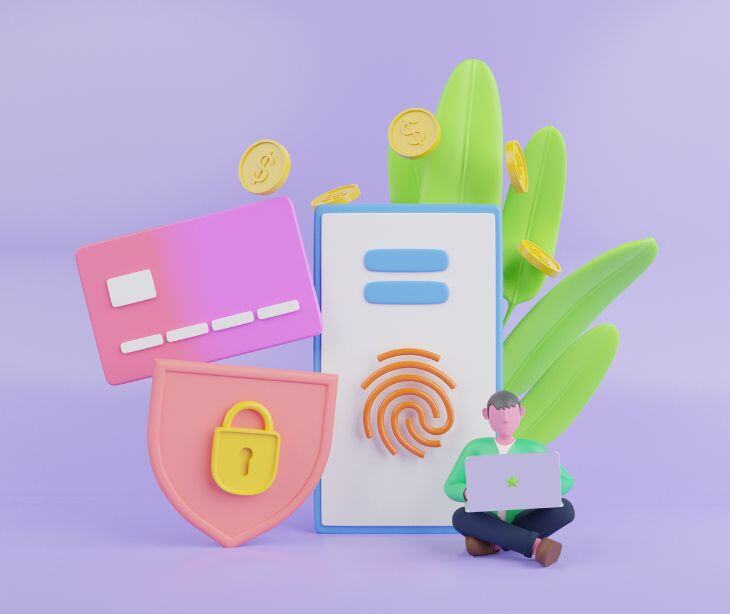
ABA therapists can use HIPAA compliant emails to send information, support, and resources to caregivers and other providers.
What is Applied Behavior Analysis (ABA)?
Autism Speaks defines ABA as “a therapy based on the science of learning and behavior.” Where ABA acknowledges “how behavior works, how it is affected by the environment, and how learning takes place…The goal is to increase behaviors that are helpful and decrease behaviors that are harmful or affect learning.”
Child Mind Institute explains that ABA “helps kids with autism learn skills and lessen problematic behavior like hurting themselves.” ABA therapy is based on the principles of behavior analysis and focuses on positive reinforcement to encourage desired behaviors. It is often used to improve communication, social skills, and daily living skills in children with autism.
Is ABA effective?
ABA is considered an evidence-based best practice treatment by the US Surgeon General and by the American Psychological Association.
Autism Speaks further states, “More than 20 studies have established that intensive and long-term therapy using ABA principles improves outcomes for many but not all children with autism. “Intensive” and “long term” refer to programs that provide 25 to 40 hours a week of therapy for 1 to 3 years. These studies show gains in intellectual functioning, language development, daily living skills and social functioning. Studies with adults using ABA principles, though fewer in number, show similar benefits.” However, the effectiveness of ABA can vary depending on individual differences and other factors.
“Some people think that ABA therapy is not harmful because it can help kids with autism learn to communicate and give them more autonomy. Other people think that ABA therapy is harmful because it requires suppressing behaviors that are natural for people with autism”, explains the Child Mind Institute.
Catherine Lord, Ph.D., an autism researcher and clinician at UCLA, states that a good therapist should “try to figure out ways that build on an individual child’s strengths, that use their interests, but that allows them to participate in society and that will give them the most choices.”
Can ABA principles be applied through email?
While ABA therapy traditionally relies on direct, in-person interaction to observe, modify, and reinforce behaviors, applying its principles through email can be challenging. Certain aspects of ABA therapy or guidance can be adapted to email communication to provide support, guidance, and follow-up for caregivers, parents, or providers. For example, sending resources, reminders, or personalized strategies tailored to the individual's needs.
Providers must use HIPAA compliant emails to maintain confidentiality and protect sensitive information. Email platforms, like Paubox, encrypt messages and safeguard patient data, for safe and confidential communication between providers and clients or caregivers.
So, while email may not fully replicate the interactive nature of in-person ABA therapy, it can serve as a valuable supplement for ongoing support and communication within the bounds of HIPAA compliance.
Benefits of using ABA in HIPAA compliant emails
Continued communication
Emails provide a written record of conversations, advice, and instructions, which can be invaluable for caregivers implementing ABA principles at home. Providers can send reminders of strategies discussed, reinforcement schedules, and behavioral goals, ensuring continuity of care and consistency in application.
Data collection and monitoring
Caregivers and practitioners can use email to exchange data or observations about the individual's behaviors, progress, and responses to certain interventions. These can include sharing and analyzing behavior logs, progress reports, and other relevant documentation to adjust strategies as needed.
Feedback and support
Emails are a convenient platform for caregivers to ask questions, seek advice, or share concerns with ABA therapists, who can provide feedback, encouragement, or further instructions. These can be particularly useful for addressing minor issues or providing continuous support between sessions.
Planning and coordination
Therapists can use emails to coordinate therapy sessions, discuss goals, and plan interventions.
Training and education
Email can deliver training materials, resources, or educational content to parents, caregivers, or even new therapists and practitioners. These might include newsletters, articles, or links to webinars and online courses.
FAQs
What is ABA therapy, and how does it help individuals with autism?
Applied Behavior Analysis (ABA) is a therapeutic approach based on principles of learning and behavior. It aims to increase positive behaviors and reduce harmful ones through systematic interventions and reinforcement techniques.
Can email communication be used to support ABA therapy?
Yes, email can be a useful tool for sharing information, providing guidance, and fostering communication between therapists, caregivers, and individuals receiving therapy.
Can therapists use regular email providers like Gmail for communication in ABA therapy?
Google does not sign a business associate agreement (BAA) with free Gmail users, making the free version of Gmail non-compliant with HIPAA regulations. To ensure compliance and avoid potential fines, therapists can consider paying for Google Workspace and signing a BAA with Google.
Paubox works with Google Workspace, and unlike other third-party services, Paubox’s HIPAA compliance is as easy as sending email as usual from any device. There are no additional steps or portals for senders or recipients.
Go deeper: Healthcare’s Ultimate Guide to Gmail: Is Gmail HIPAA compliant?
Subscribe to Paubox Weekly
Every Friday we bring you the most important news from Paubox. Our aim is to make you smarter, faster.




